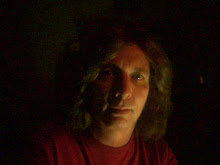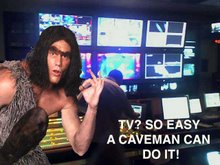 I was born at Fort McClellan, Alabama
I was born at Fort McClellan, Alabama to a military family. We ended up moving around as military family's often do, ending up in Okinawa for a few years and then finally returned to the States to California.
My parents wanted to stay in California though the Army had other plans for my dad. So we moved to Fort Carson, Colorado.
That was my first experience with real snow. We had seen some when I was a kid in Alabama, it snowed enough that Sears or some store actually sold sleds, though it melted really quick, after a day or 2.
But I remember when we got to Colorado on New Year's day of 1968. It was cold, overcast, and snowy and did I mention cold? I also remember seeing the Rocky Mountains for the first time in my life and Pikes Peak just towering over Ft. Carson & Colorado Springs.
I grew up in Colorado Springs and even though I was born in the great state of Alabama, I consider Colorado Springs and Colorado my home. I also know what it's like being in the mountains there, and it is very dangerous with winter and even in spring time with snow, you just don't fool around in the mountains.
So, the following story is both about 'blowhard smarming' and my familiarity with the snow in springtime in Colorado.
Katherine Lee Bates wrote the first verses while gazing out from the summit of Pikes Peak. And the verse, "for purple mountains majesty" is what you see as the sun in the east is rising and hits the Rockies at around sunrise. I have been in Garden of the Gods many times to see "the purple mountains majesty" and it is awe-inspiring.
So, anyway, the following is from the 'Colorado Springs Gazette' which I used to read all the time when I lived there. It is not uncommon to have snow in the mountains in May or June, so this story about how snowy Pikes Peak is during this time of year just indicates to me that once again, we don't rule mother nature, she rules us.
till the next time,
 Climbers get the cold shoulder
Climbers get the cold shoulder By DAVE PHILIPPS, THE GAZETTE
May 23, 2007 - 11:45PM
Last May, Teresa Taylor was watching climbers pad up to the summit of Pikes Peak in shorts and sneakers. This year, she’s warning everyone that beyond Barr Camp, you’d better be

dressed for the worst.
This is the snowiest spring on Pikes Peak in more than a decade. Barr Camp recorded 231 inches of snow this winter. (It only saw 50 inches in 2006.)
Hikers venturing above treeline will find that the peak is more wintry this May than it usually is in January, and they should be prepared.
“The snow is still waist-deep in places, and we just got more today,” Taylor, the caretaker at Barr Camp, said Wednesday. Every day, she warns people that the trail is buried.
Some climbers listen — she persuaded a dozen Texans in jeans to turn back Sunday. But some climbers don’t. Two Air Force Academy cadets headed up to the summit Tuesday. They became stranded above treeline and had to be rescued by helicopter Wednesday morning.
The cadets, Jesse Mortensen, 21, a junior from Michigan, and Jesse Luschen, 22, a senior from Iowa, were out to enjoy a hike during an idle period at the academy between the end of spring term and graduation.
They hiked seven miles up the snowless bottom part of Barr Trail on Monday and spent the night at Barr Camp. Tuesday, they left camp early, expecting to cover the remaining five miles to the top before noon.
They did not have snowshoes, ice axes or winter gear, but they did carry sleeping bags and a tent.
When Taylor said weather was moving in, they assured her they could beat it to the top.
If you get in trouble or get tired, Taylor told them as they left, the last train leaves from the summit at 4 p.m.
“They said, ‘Four? We’ll be there long before then,’” she said Wednesday.
They never got there.
“We hiked for hours and hours. It was very frustrating and hard,” Mortensen said Wednesday.
The cadets pushed through knee- and waist-deep snow. A storm rolled in, pelting them with snow and hail.
Snow obscured the trail. Clouds obscured the summit.
“We could hear the train whistle. We kept thinking we were at the summit. Obviously, we weren’t,” Mortensen said.
The cadets likely took a wrong turn near 13,000 feet, two miles from the summit, and crossed onto a steep flank of the peak called the Bottomless Pit.
About 5:30 p.m., lost, soaked and shivering uncontrollably, they set up their tent. Inside, they shed their wet clothes and crawled into their sleeping bags. Mortensen called for help on his cellular phone.
El Paso County Search and Rescue drove a snowcat to the top of the closed Pikes Peak Highway, arriving at 10:30 p.m. Rescuers worked their way down the main cirque, searching for the cadets with no luck.
At dawn, searchers crossed into the Bottomless Pit and found them, said Steve Sperry, spokesman for Search and Rescue.
Both were cold and wet, wearing jeans and tennis shoes, but otherwise OK, Sperry said.
A National Guard Blackhawk helicopter flew the cadets and rescuers to town Wednesday morning. Neither cadet was treated for injuries.
Mortensen said he didn’t heed warnings at Barr Camp because he never anticipated how difficult the combination of deep, wet snow, weather and altitude would be.
In the years the cadets have lived in Colorado Springs, tennis shoes and jeans would have been adequate for a May Pikes Peak climb, but this year it’s so snowy that skiers have been riding the train up and skiing down the east face this month.
Temperatures at the summit have hovered around freezing for days. Snow will likely last into June or July.
“It’s been warm in town, and people think, ‘How much snow can there be?’ There’s a lot,” Taylor said. “And it’s wet, deep snow. You’re going to sink in and get soaked through.”
 I love watching the old "Alfred Hitchcock Presents" series on "Chiller". And I have always suffered from insomnia in one fashion or another, sometimes bad, sometimes not so bad, so I was glad to find that Alfred Hitchcock offered a new product for those of us who suffer from it, even though it was in 1956
I love watching the old "Alfred Hitchcock Presents" series on "Chiller". And I have always suffered from insomnia in one fashion or another, sometimes bad, sometimes not so bad, so I was glad to find that Alfred Hitchcock offered a new product for those of us who suffer from it, even though it was in 1956

























































